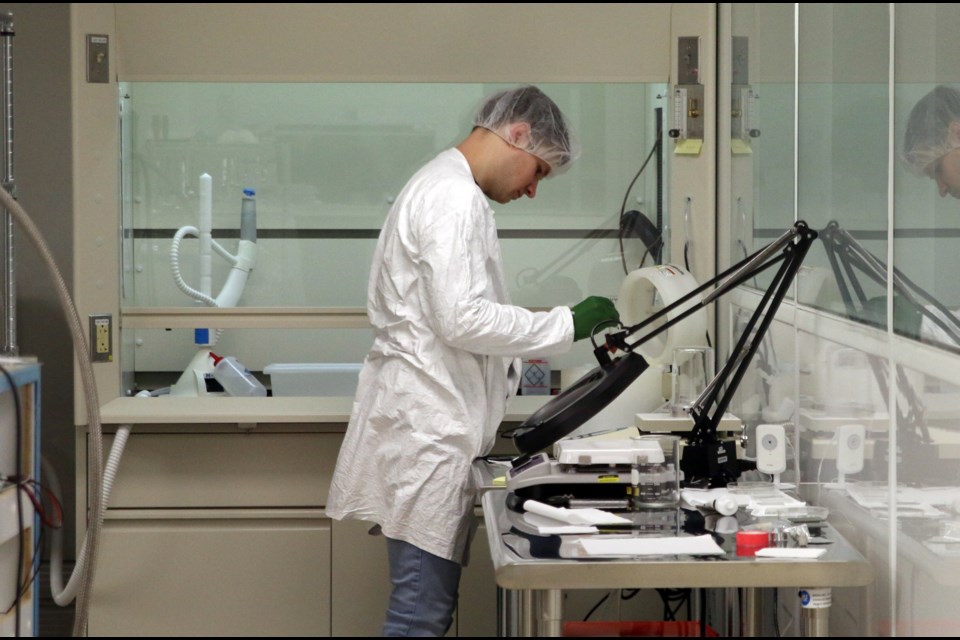THUNDER BAY – New technology designed and built in Thunder Bay for detecting breast cancer is moving further into clinical trials with the help of a grant worth nearly $450,000.
Alla Reznik, a professor in physics at Lakehead University and Canada Research Chair, received $448,000 from the Canadian Cancer Society’s Innovation to Impact Grant.
“The goal of this grant is to start clinical trials using our molecular breast imaging system, which was designed, developed, and manufactured in Thunder Bay,” Reznik said. “Clinical trials are underway already at the Princess Margaret Cancer Centre and we are very happy with initial results.”
For the past three years, Reznik and her team have developed molecular imaging equipment, or positron emission mammography that is designed to provide more accurate results in breast cancer screening for women who may not benefit from traditional x-ray mammography.
“The idea of our work is to make a technology that will be aligned with the goal of personalized medicine and personalized breast cancer detection,” Reznik said.
“X-ray mammography is breast imaging. It detects increased density of different tissue in the breast. Normally cancer is associated with increased density. But if breast tissue is dense, mammography can be absolutely blind. It is very difficult to find small cancers in patients who have dense breasts.”
Women with dense breast tissue are also at higher risk of developing breast cancer and this new technology being developed by Reznik will detect cancerous tissue independently of breast density.
“We can see tumours regardless of breast density,” she said. “So it is very important for those patients for whom mammography is inefficient for dense breasts.”
Clinical trials are already taking place at the University Health Network-Princess Margaret Cancer Centre and Reznik said the results have been promising so far.
“The clinical trials are also very important for us to receive feedback for technology optimization in terms of detectability of small lesions, prognosis of breast cancer, and other important things to physicians,” Reznik added.
Clinical trials are expected to take a year and Reznik said she is hoping 40 patients will be scanned in that time.
The grant will also be used to begin the first steps in achieving commercialization for the new technology and making it common practice in clinics and hospitals.
“Another goal of this grant is to advance our technology,” Reznik said. “We need to improve functionality of our devices. Today our goal was to detect early breast cancers which are non-invasive cancer, but we would like to increase functionality to see also aggressive cancers.”
“Advanced diagnostic tools are very expensive,” Reznik added. “Now the goal of this study is to find components that will allow us to reduce the cost while improving functionality of the device. Clinical trials is an important step, but we also have to commercialize device.”
